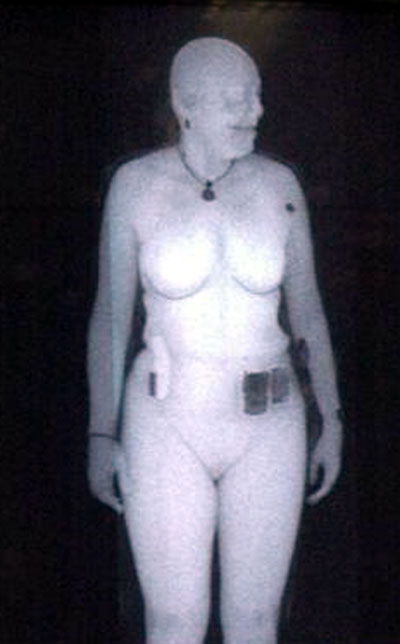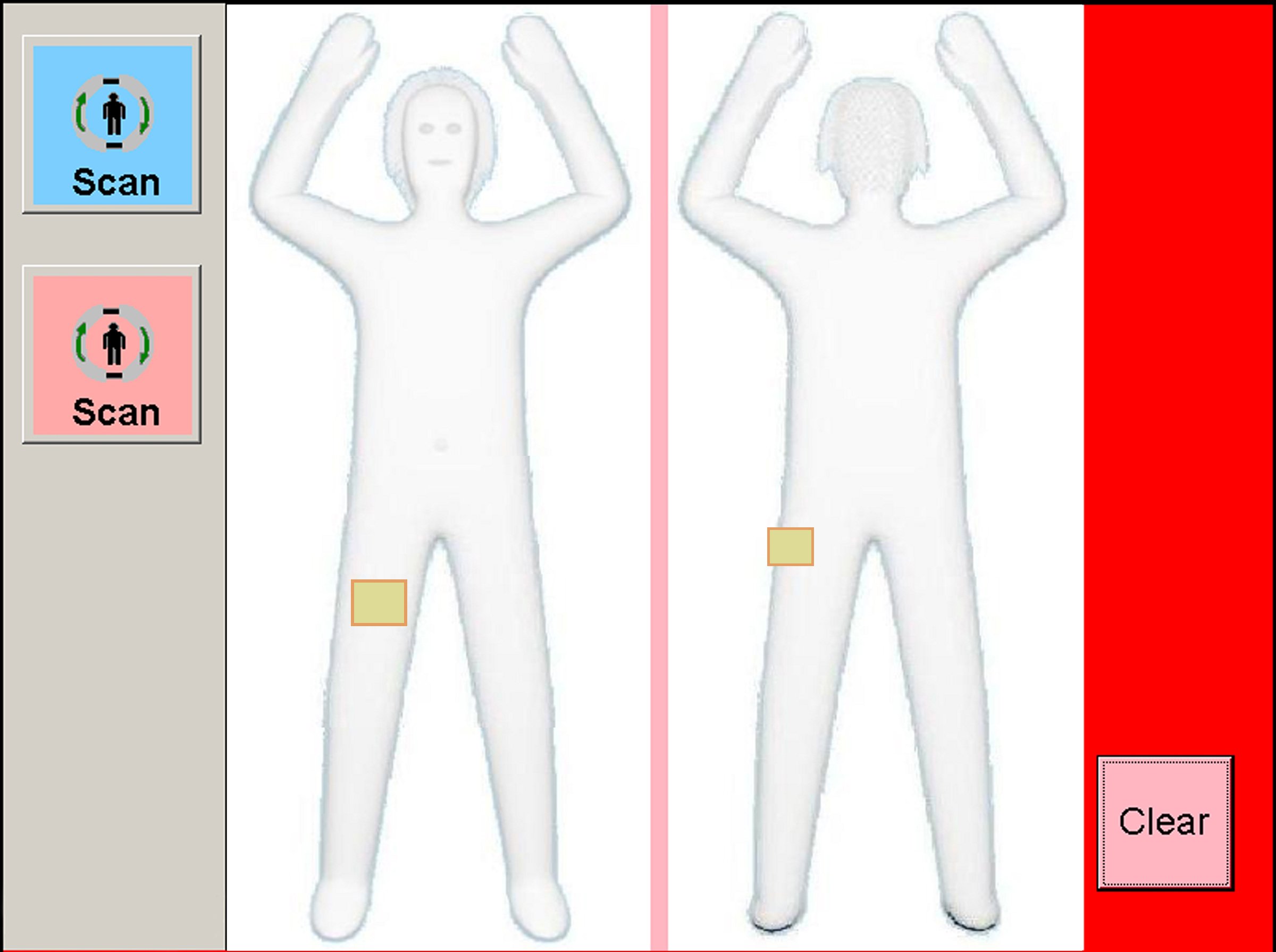In the years after 9/11, and especially after an incident on Northwest Airlines flight 253 in 2009, the TSA began introducing “backscatter” screening machines made by Rapiscan. They were the first scanners in which you emptied your pockets, stood between two big boxes, raised your hands over your head, put your feet on the painted feet on the floor, didn’t move, and had X-rays shot at your body to see what you may have under your clothes. By December 2010, the TSA had about 500 of them in U.S. airports.
Besides the concerns about how much radiation your body was being subjected to (it was said to be much less than a medical X-ray, but still, radiation is radiation, y’know?), there were also privacy concerns because of what TSA workers could see. Stuff like this:

PC: Wikipedia
The image above has actually been edited a bit. Based on my research, it appears that TSA officers could actually see hazy but recognizable images of nipples, backsides and male genitalia (Click here for an example – image is mildly NSFW).
In 2012, the TSA announced they would begin removing the Rapiscan “backscatter” scanners due to privacy concerns and the fact that Rapiscan couldn’t update the software fast enough to avoid those intimate details (and hopefully because of the radiation issue, as well).
Since then (well, 2016ish), they’ve begun using Pro:Vision AIT (Advanced Imaging Technology) scanners. They use electromagnetic waves, which are said to be harmless.
From a privacy point of view, they’re even better. A monitor shows a generic cookie-cutter-like outline of a person and highlights any potential threats. The image is the same regardless of gender, height, or body type. The scanner software recognizes metallic and non-metallic items hiding under clothing and then processes an image using yellow boxes to point out any areas that may need additional screening. If there’s nothing to be concerned with, a green “OK” appears on the screen.

PC: TSA
Best of all, concerned travelers can see the above image when they exit the scanner, so they know no one is seeing anything they shouldn’t.
Both machines have you stand in the same position while the image taking moves around you, so if you were an infrequent traveler, you’d never know the difference and might think they’re still looking at the “naked” body scanners.
They’re not. 🙂
In February 2023, it was announced that TSA’s entire fleet of Pro:Vision AIT systems would be overhauled with a new AI-powered algorithm. The goal of the planned overhaul is to increase security effectiveness via enhanced threat detection methodology that will reduce false alarms.
“These new algorithms will help reduce false alarms that lead to unnecessary pat-downs and checkpoint inefficiencies.” These issues, were, at least in part, what they were talking about.
Feature image (cropped): “tsa scanner” by Steven Perez is licensed under CC BY-SA 2.0
Want to comment on this post? Great! Read this first to help ensure it gets approved.
Want to sponsor a post, write something for Your Mileage May Vary or put ads on our site? Click here for more info.
Like this post? Please share it! We have plenty more just like it and would love it if you decided to hang around and sign up to get emailed notifications of when we post.
Whether you’ve read our articles before or this is the first time you’re stopping by, we’re really glad you’re here and hope you come back to visit again!
This post first appeared on Your Mileage May Vary
